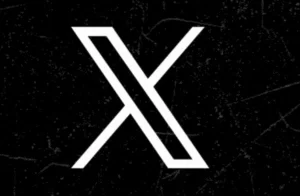
India orders X to block 8,000 social media accounts over security concerns. Free speech debate intensifies
In a major crackdown on digital misinformation, the Indian government has ordered X (formerly Twitter) to block over 8,000 Social Media Accounts, citing national security concerns. The move comes amid rising geopolitical tensions and an effort to curb fake news, propaganda, and cyber threats.
The directive, issued by the Ministry of Electronics and Information Technology (MeitY), mandates the immediate restriction of access to these accounts within India. While the government insists the action is necessary for public safety, critics argue it raises free speech concerns
Why Were These Social Media Accounts Blocked?
According to official sources, the blocked accounts were flagged for:
- Spreading misinformation related to national security.
- Promoting anti-India narratives linked to foreign entities.
- Inciting violence or communal unrest through social media posts.
- Engaging in cyber threats targeting government institutions.
Many of these blocked accounts reportedly belonged to international news organizations, activists, and anonymous users who frequently post about India’s defense operations and political affairs
X’s Response & Free Speech Debate
Social media platform X has complied with the government’s orders, but not without protest. In a statement, the company expressed concerns over the lack of transparency in the directive, stating:
“Blocking entire accounts is unnecessary and amounts to censorship of existing and future content. We strongly disagree with the government’s demands.”
X also revealed that, in many cases, the government did not provide specific evidence or justification for blocking the accounts. The platform is now exploring legal options to challenge the directive while ensuring continued access for Indian users.
Legal & Political Implications
The mass blocking of accounts has sparked debate over digital rights and government control.
- Legal experts argue that such actions must be backed by clear evidence and judicial oversight.
- Opposition leaders have criticized the move, calling it an attempt to silence dissent.
- Cybersecurity analysts warn that excessive restrictions could push users toward encrypted platforms beyond government control
Despite the controversy, the Indian government maintains that national security takes precedence over digital freedoms. Officials have urged citizens to rely on verified sources for information and avoid unregulated social media narratives
What’s Next?
- Affected users have been notified and advised to seek legal recourse.
- X is working with legal experts to challenge the directive.
- The government may issue further restrictions on accounts deemed a security risk.
As India navigates the complex balance between security and free speech, the global tech community watches closely. The outcome of this dispute could set a precedent for digital governance in the country
Also read about Political and Social Reactions- A Divisive Debate on Dissent and Nationalism
Stay informed with the latest news and updates – only on Rapido Updates.